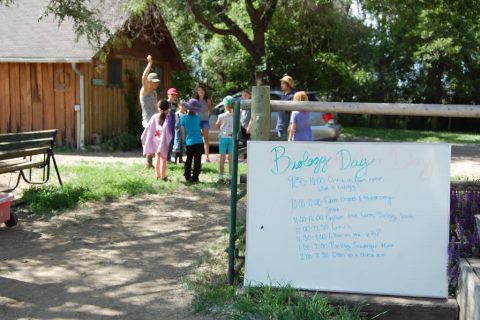Summer Brain Gains not Brain Drains
Summer: the days are long, alarm clocks are turned off, watermelon is on sale, everything kids learned over the course of the school year is slowly being forgotten…
It’s true. Since 1906 educators have noticed the pattern and recent studies show that over the course of summer vacation students lose up to 2 months’ worth of information they learned over the school year. This phenomenon is termed many things including: The Summer Slide, Summer Learning Loss, and—my personal favorite—Summer Brain Drain. Though why information is lost or how much information is lost hasn’t been pinpointed studies have concluded a few key things. First, Summer Brain Drain occurs universally but not equally across the population. No groups seem immune to Summer Brain Drain, but some ethnic or socioeconomic groups do seem to forget more than others. Second, students lose more math comprehension then reading comprehension. Third, teachers often spend up to the first month of the school year reteaching material from the previous year. Lastly, and most importantly, there are ways to successfully increase retention over the summer break.
There are two schools of thought (pun intended) on the best way to fight Summer Brain Drain: supplemental summer programs or integrating academia into summer activities. Supplemental summer programs range from required summer school to structured reading incentive programs. These programs use teaching techniques and focus on traditional content. Most target a specific group such as kids with low grades or kids from high risk communities. Overall these programs are successful at decreasing Summer Brain Drain but they are expensive to run and often hard to implement. Many educators argue that they go against the spirit of summer. Summer break is a time to relax and recharge, to explore other avenues of their life and spend valuable time with families. Because of this, many educators believe that these structured programs shouldn’t be required except for students who are severely behind and or need to make up failed classes.
These programs include:
Alternatively, there are several ways to incorporate learning into everyday summer activities. Parents can encourage their kids to read, explore, and learn a new skill. Activities like these fold well into the spirit of summer but help keep students sharp.
 Here is a brief list of activities to combat Summer Brain Drain
Here is a brief list of activities to combat Summer Brain Drain
- Summer camps that focus on learning new skills while having fun!
- Family summer projects such as planting a garden, creating a rock collection, repainting the shed. All of these are mentally engaging.
- Read! Read! Read! It doesn’t matter so much what they are reading—encourage your child to read something they find interesting. Or check to see if your l library has a summer reading program.
- Kid Dinner is a way your child can be responsible for cooking dinner one night a week.
- Summer job or job shadowing is great for older kids. They can get valuable experience, learn new skills and responsibilities, and maybe make some money.
- Family field trip such as checking out a local park or museum.
Of course, there are infinite other options. As long as kids are engaged in learning some new skill or experience while still having fun, you’re actively helping to reduce Summer Brain Drain and likely even learn a few things, what I like to call: Summer Brain Gains!
Returning to the classroom after summer break can be hard, it can be an onslaught of responsibilities and an abrupt change in schedule. Many children have anxiety about the end of summer. Though helping them keep their mind primed and engaged throughout summer break is beneficial many kids need additional help. If your child has anxiety or negative feelings towards school, counseling might help, the nCenter offers resources to help ease the transition from summer break to the school year and set kids up for an academic and behavioral success. Check out our website or give us a call to learn more.
Blog by: Kat Afton
Photo Credit: Laughing Buck Farm

